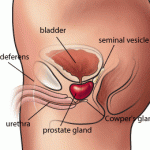What makes dealing with colon cancer tough is that the symptoms may not be obvious at an early stage. Reading information about the signs and colorectal cancer symptoms can help understand and interpret the signals that the body gives in a better manner. Knowledge about symptoms will help to be better prepared in case the disease knocks on your doors.
A sign is an indication that is observed by a health care professional while a symptom is something that only the person experiences is aware of. No signs or symptoms may be observed at an early stage. The reason for this is that there is a lot of space in the abdomen allowing the tumor to grow unnoticed. Symptoms start spearing when the tumor starts blocking the colon or the rectum. Symptoms that patients may report may vary from case to case
Early symptoms of bowel cancer are:
- Change in bowel habits which could involve narrow stools, diarrhea, constipation that may extend beyond a few days. Mucus or blood in the stool is also a matter of investigation.
- Abdominal discomfort like pain, cramps, fullness bloating can be indicative of colorectal cancer.
- Frequent complaints of nausea, vomiting, lack of appetite, fatigue, anemia and weight loss for no apparent reasons.
Late Symptoms of Colorectal Cancer
Late symptoms start to appear as the cancer grows uninhibited in the body. It spreads to other parts and organs of the body. Some symptoms that have been observed in advanced cases are:
- Severe pain in the abdomen
- Fluid in the abdomen
- Liver enlargement
- Jaundice
- Enlarged lymph nodes
- Difficulty in breathing
- Loss of appetite
- Pain in the back or the hip area.
A combination of therapies – surgery, chemotherapy, radiation and biological therapy may be used depending on case to case. The team of doctors treating this type of cancer would include – a surgeon, a gastroenterologist, a medical oncologist and a radiation oncologist.
As in the case of other forms of cancers early detection is a boon. It is important that you be vigilant towards the changes in your body.
Reference: American Cancer Society Website










